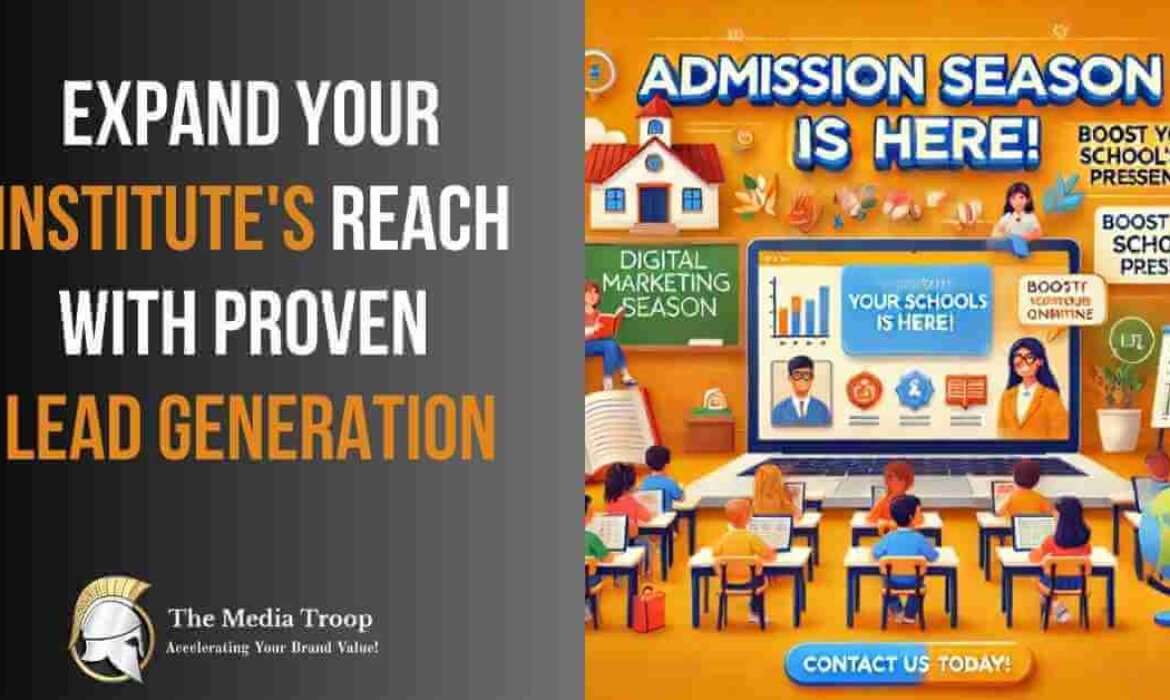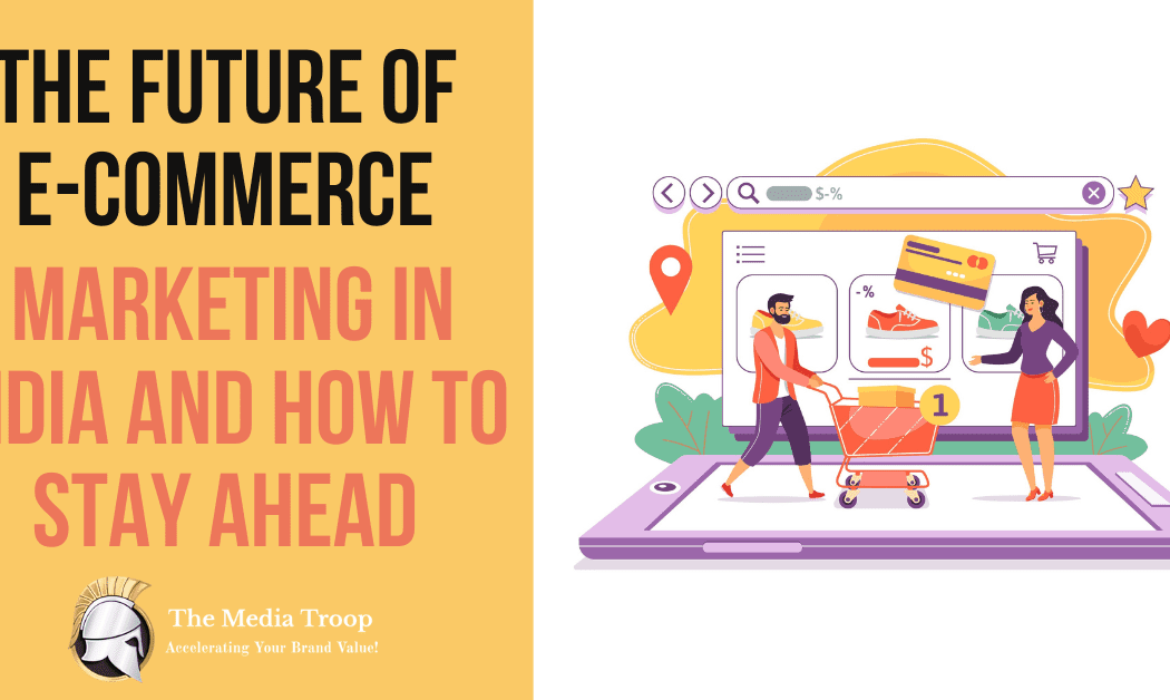Maximize Your Institute’s Reach with Proven Lead Generation Techniques
In today’s digital-first world, educational institutes face growing competition to attract students. The challenge isn’t just about visibility but also about converting interest into actionable inquiries. This is where lead generation services play a pivotal role, helping schools, colleges, and universities connect with prospective students effectively.
Why Lead Generation is Crucial for Educational Institutes
Lead generation is the process of attracting and converting strangers into potential customers, or in this case, prospective students. With parents and students increasingly turning to online platforms for research, educational institutes need robust digital marketing strategies to stand out. Lead generation focuses on:
- Targeting the Right Audience: With tools like audience segmentation, institutes can reach students who align with their courses, values, and goals.
- Increasing Engagement: Personalized campaigns create meaningful connections that foster trust.
- Improving Enrollment Rates: A strong lead generation strategy ensures a consistent stream of inquiries, increasing the likelihood of successful admissions.
Effective Lead Generation Strategies for Educational Institutes
- Optimized Landing Pages: A well-designed landing page is the cornerstone of any lead generation campaign. It should highlight your institute’s unique offerings, include compelling visuals, and have a clear call to action (CTA) like “Enroll Now” or “Request a Brochure.”
- Search Engine Optimization (SEO): By targeting keywords like “top schools in [location]” or “best engineering colleges,” your website can rank higher on search engines, making it easier for prospective students to find you.
- Pay-Per-Click (PPC) Advertising: Paid ads on platforms like Google and Facebook allow institutes to reach potential students based on age, location, and interests. PPC campaigns ensure that your ads are seen by the right people at the right time.
- Social Media Campaigns: Platforms like Instagram, Facebook, and LinkedIn are excellent for engaging with your audience. Share success stories, alumni testimonials, and campus events to create interest and build trust.
- Social Media Ads (Facebook and Instagram Ads): These platforms offer powerful advertising tools that allow educational institutes to run highly targeted campaigns. With features like location targeting, interest-based segmentation, and retargeting, Facebook and Instagram ads help you reach prospective students and parents effectively. Use carousel ads to showcase multiple programs or video ads to tell your institute’s story in a compelling way.
- Content Marketing: Blogs, videos, and infographics on topics like career guidance, course highlights, and admission processes not only add value but also establish your institute as an industry leader.
- Email Marketing: Send targeted emails to nurture leads through personalized content, event invitations, and admission updates. A well-timed email campaign can significantly improve conversion rates.
- Virtual Events and Webinars: Host online open houses, live Q&A sessions, or webinars to provide direct interaction with potential students and parents. These events create a sense of connection and allow you to address concerns in real-time.
Measuring Success
A successful lead generation campaign isn’t just about generating inquiries but also about tracking and optimizing performance. Key metrics include:
- Conversion Rates: How many inquiries turn into admissions?
- Cost Per Lead (CPL): Are you getting quality leads at a reasonable cost?
- Engagement Rates: Are your campaigns creating meaningful interactions?
Partner with Experts
Managing lead generation in-house can be overwhelming for educational institutes. Partnering with a digital marketing agency ensures access to expertise, tools, and strategies that deliver results. Agencies specialize in creating tailored campaigns, optimizing budgets, and ensuring your institute remains ahead in the competitive education sector. If you are looking for the Best Digital Marketing Agency in Pune, we are here to help.
Conclusion
In the evolving landscape of education, effective lead generation is not just an option—it’s a necessity. By leveraging digital marketing strategies, educational institutes can attract the right students, build lasting relationships, and achieve their enrollment goals. If you’re ready to elevate your admissions strategy, let’s talk about how our lead generation services in Pune can transform your institute’s outreach. We are proud to be recognized as a Top Digital Marketing Agency in Pune, specializing in Lead Generation Services for Educational Institutes.
Start turning potential into success today!
The Future of e-commerce marketing in India and How to stay ahead

E-commerce marketing refers to the practice of using digital marketing strategies and tactics to promote and sell products or services online. It involves utilizing various channels such as search engine optimization (SEO), social media marketing, email marketing, pay-per-click (PPC) advertising, and other digital marketing techniques to attract potential customers and increase online sales. The goal of e-commerce marketing is to improve brand visibility, drive traffic to an e-commerce website or online store, and ultimately generate revenue through online sales.
The e-commerce industry in India is experiencing rapid growth, with the market set to reach $200 billion by 2026. With more and more consumers turning to online shopping, the future of e-commerce marketing in India looks promising. As an e-commerce marketing agency in Pune, we understand the importance of staying ahead of the curve in this ever-evolving industry. In this blog post, we will discuss the future of e-commerce marketing in India and how to stay ahead.
Benefits of Digital Marketing for Retail Brands
Companies should use digital marketing as a great tool if they want to engage with their target market on a global scale, build brand awareness, market and sell goods and services at competitive prices, and generate a higher return on investment. A well-thought-out digital marketing strategy will have a variety of effects on the overall performance of retail businesses.
- The use of digital marketing improves customer satisfaction while maximizing convenience and effectiveness.
- It makes use of fresh possibilities, like attracting leads outside of specific geographic regions and cutting down on marketing expenses.
- Enhancing brand recognition, awareness, and image raises brand metrics.
- By interacting and engaging with customers, it improves conversion, acquisition, and retention rates by connecting with the right prospects.
- Thanks to this, small and medium-sized retailers can easily reach customers worldwide and promote their brands while overcoming competition.
One of the key trends in the future of e-commerce marketing in India is the increasing adoption of artificial intelligence and machine learning. These technologies can be used to personalize the shopping experience for customers, providing them with relevant product recommendations and personalized offers. By leveraging AI and ML, e-commerce businesses can increase customer retention and drive sales.
Another trend that is set to shape the future of e-commerce marketing in India is the rise of social commerce. Social media platforms such as Facebook, Instagram, and TikTok are increasingly being used as sales channels. With the integration of features such as shoppable posts and in-app purchasing, social media platforms have become an integral part of the e-commerce ecosystem. Brands that can effectively leverage social commerce will have a significant advantage in the future of e-commerce marketing in India.
The increasing adoption of mobile devices is also set to shape the future of e-commerce marketing in India. With more and more consumers using their smartphones to shop online, mobile optimization has become crucial. Brands that can provide a seamless mobile shopping experience will have a significant advantage over those that cannot.
To stay ahead in the future of e-commerce marketing in India, businesses need to focus on providing a personalized and seamless shopping experience. This can be achieved by leveraging technologies such as AI and ML, effectively utilizing social commerce, and ensuring that their e-commerce platform is mobile-optimized. Additionally, businesses should also focus on building a strong brand presence and developing a loyal customer base.
Furthermore, e-commerce businesses must stay up-to-date with the latest trends and technologies in the industry. As an e-commerce marketing agency in Pune, we constantly monitor the market and stay updated on the latest trends and technologies to provide our clients with cutting-edge solutions.
In conclusion, The future of e-commerce marketing in India looks promising with several key factors driving its growth. One major factor is the increasing adoption of artificial intelligence and machine learning. As more and more e-commerce companies in India are embracing these technologies, they can offer personalized and targeted shopping experiences to their customers. Another trend that is shaping the future of e-commerce marketing in India is the rise of social commerce. Finally, the growing popularity of mobile devices is also a key driver of e-commerce marketing in India. With over 500 million smartphone users in the country, mobile devices are rapidly becoming the preferred channel for online shopping.
As an e-commerce marketing agency in Pune, it is important to stay ahead of these trends and technologies to help businesses succeed in the ever-evolving industry. By providing personalized and seamless shopping experiences, building a strong brand presence, and staying up-to-date with the latest trends and technologies, businesses can stay ahead in the future of e-commerce marketing in India.
Furniture Company Appoints Retail Heavyweight
Want to know the one thing that every successful digital marketer does first to ensure they get the biggest return on their marketing budget? It’s simple: goal-setting. This is an absolutely essential practice for any digital marketer who knows how to execute their campaigns in a productive, cost-effective way. With a few. With a few simple tips, you can be doing the same in no time! In this blog, we’ll walk you through the first steps every savvy digital marketer takes to ensure that they’re on target to hit all their marketing objectives. Get ready for revenue!
Remember: even if the channel you’re considering is all the rage right now, it might not fit your brand. Always make informed decisions that directly relate to your company. Otherwise, your message won’t be delivered to its intended audience and you’ll have wasted time, effort and money.
Know Your Goals
The first step is clearly identifying which goals you want to achieve. Get specific. Do you want to increase brand awareness? Are you all about locking in leads? Do you want to establish a strong network of influencers that can help you be discovered? How about pushing engagement on social media?
Get Specific
A useful tool for narrowing down your goals to ensure they’re viable is the SMART mnemonic. It’s important to get specific to understand exactly what you’re working towards, and help you break down the process of hitting your targets. This is exactly what this mnemonic helps you to achieve.
- Does the channel reach my intended audience?
- Is the channel sustainable and affordable within my company’s marketing budget?
- Will I be able to measure the success of the channel?
- Does the channel allow me to express my brand’s intended message?
- Do the channels I’m considering work together to convey my message?
Always Remember Your Goals!
Establishing a solid vision for your business is the first step to planning your digital marketing budget. Always keep your final goals in sight when organising anything for your company. When deciding which steps to take next in your business, ask yourself how they will help you achieve the goals you outlined in Step #1. This will ensure that you stay on track and prevent you from spending your budget on anything that won’t help you achieve.
Cum et essent similique. Inani propriae menandri sed in. Pericula expetendis has no,
quo populo forensibus contentiones et, nibh error in per.Denis Robinson
As your budget progresses and evolves, continue referring to your SMART objectives. Stay focused and remember your goals – they will always inform what your next step will be!












